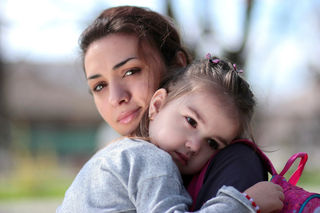Career
Moms Working Outside of the Home: Good for Kids?
Balancing work and raising children is a critical issue for parents
Posted July 18, 2016

How to balance work and raising children is a critical question that most parents face today.
Many mothers do not have the option to stay home to raise their children because their families need their incomes to get by. (My own mother fell into this category.) Others, myself included, get an education, start a career, and then decide to have children – leaving them with some big choices about if and how much they should work outside of the home.
But no matter what the circumstances and choices, all parents are concerned with one thing: what is best for their children.
It turns out – according to a systematic review by researchers at the University of California-Irvine – that children of mothers who return to work while the children are infants and toddlers fare the same behaviorally and in school achievement compared to children whose mothers stay home. The review looked at 69 studies over a period of 50 years that included data about children’s school performance and behavioral problems.
In fact, in some families, children benefited when mother's returned to work sooner. Kids from single-parent or low-income families whose mothers worked had better academic and intelligence scores and fewer behavioral problems than children whose mothers did not work, the authors found. This was probably because the mother's income helped reduce stress in the home and provided children with more opportunities.
The only children who struggled more were those whose mothers returned to very intensive full-time employment early on – a finding that makes a case for longer maternity leaves, the researchers said. These children showed slight increases in externalizing behaviors, or directing their negative feelings toward other people. The review also found that children in middle- and upper-class families with two working parents were slightly more likely to see decreases in achievement later on.
Studies included in the review measured school performance through achievement test scores, school grades, intelligence test scores and teacher ratings. Behavioral problems included were reported by parents, teachers or the older children themselves. Many of the studies were longitudinal, meaning the researchers followed families for several years after the mothers went back to work – even into the children’s adolescent years.
Several factors help explain why maternal employment does not have adverse effects on child outcomes, says Sharon Sassler, professor of policy analysis and management at Cornell.
For starters, the data shows that most women in the United States work, even after having a child (although many work part-time). Also, most children spend considerable amounts of time away from their families in school or preschool, Sassler explained, even as young as three and four years old.
But the biggest factor may be a cultural shift in parenting norms, she said.
“Even though more mothers are working, and more married families contain two working parents than in the past, various studies have revealed that children are spending more time with parents – fathers as well as mothers – than they did in the 1960s,” she said.
“The value of spending time with children has clearly increased, even if working mothers – and fathers – must decrease their own personal leisure time, devotion to house cleaning, or sleep to achieve that end. And one of the more interesting research findings is that fathers – especially men with a college degree – have increased the amount of time spent with children, both when they are married and when they do not live with their children. Not only does that offset potential reduction resulting from working mothers time away from home, but it strengthens ties between all family members – husbands and wives or partners, as well as parents and children.”
In fact, Sassler herself is a working mother with a child in middle school. On a personal note, she’s found that having two working parents has taught her son the value of cooperation. “He realizes that this is a team affair, and that sacrifices are sometimes required of all family members – but that we all benefit as well from the fruits of all of our labor,” she said.
To sum it up, navigating decisions about working outside of the home can certainly be a source of stress. But knowing the evidence shows that children thrive in both cases can help moms to make the decisions that are best for their families.




